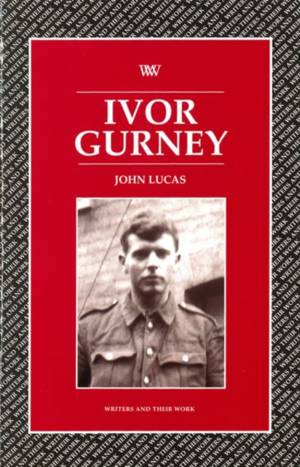
Bedankt voor het vertrouwen het afgelopen jaar! Om jou te bedanken bieden we GRATIS verzending (in België) aan op alles gedurende de hele maand januari.
- Afhalen na 1 uur in een winkel met voorraad
- In januari gratis thuislevering in België
- Ruim aanbod met 7 miljoen producten
Bedankt voor het vertrouwen het afgelopen jaar! Om jou te bedanken bieden we GRATIS verzending (in België) aan op alles gedurende de hele maand januari.
- Afhalen na 1 uur in een winkel met voorraad
- In januari gratis thuislevering in België
- Ruim aanbod met 7 miljoen producten
Zoeken
Omschrijving
Drawing on biographical information, letters, reminiscences and anecdotes, John Lucas pieces together Gurney's difficult, indeed tragic life, in order to show that Gurney's poetry, while undoubtedly affected by his mental problems, his trench experiences in World War One, and his complex relationship to Gloucester, the Cotswalds and London, is the sane utterance of a deeply radicalized writer. There is no suggestion that Gurney's experiences were unique. On the contrary, they were typical, as he well knew, and as he declares in poems which celebrate the implications of comradeship. What is unique is Gurney's ability to turn these experiences into major poetry. Gurney is the greatest of all those poets who fought in and survived the war and his achievement drastically affects our understanding of twentieth century poetry.
Specificaties
Betrokkenen
- Auteur(s):
- Uitgeverij:
Inhoud
- Aantal bladzijden:
- 144
- Taal:
- Engels
- Reeks:
Eigenschappen
- Productcode (EAN):
- 9780746308875
- Verschijningsdatum:
- 8/01/2001
- Uitvoering:
- Paperback
- Formaat:
- Trade paperback (VS)
- Afmetingen:
- 138 mm x 216 mm
- Gewicht:
- 158 g

Alleen bij Standaard Boekhandel
+ 111 punten op je klantenkaart van Standaard Boekhandel
Beoordelingen
We publiceren alleen reviews die voldoen aan de voorwaarden voor reviews. Bekijk onze voorwaarden voor reviews.









